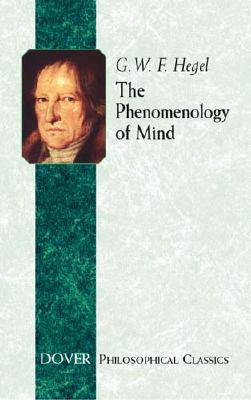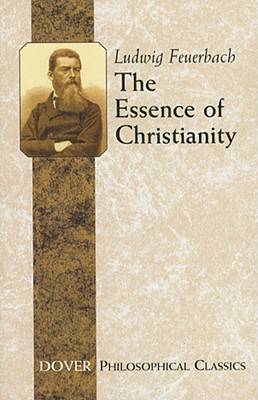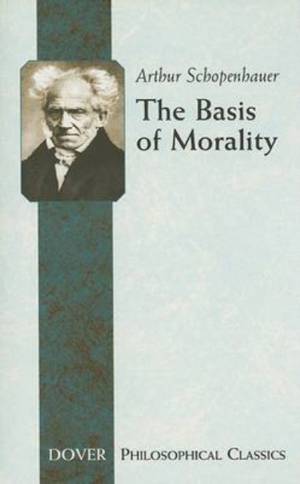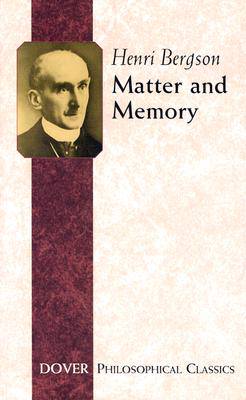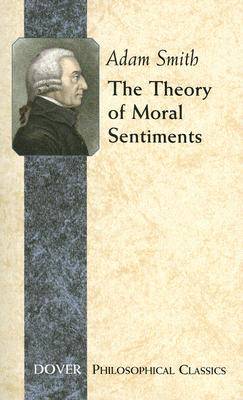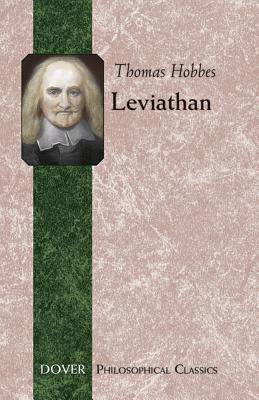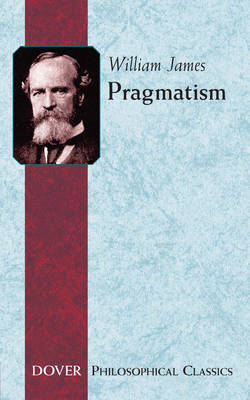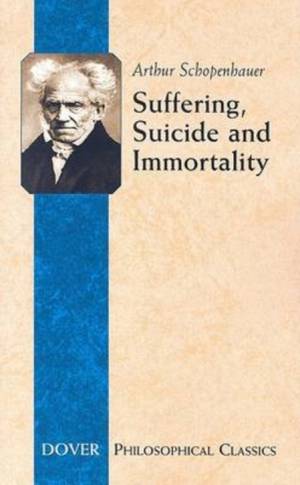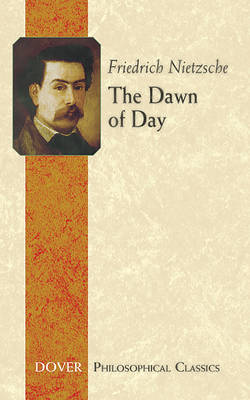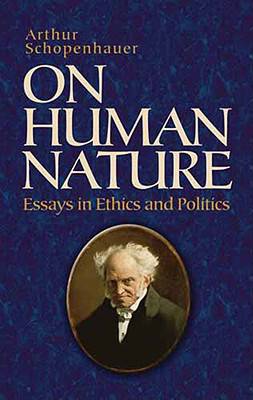
- Retrait gratuit dans votre magasin Club
- 7.000.000 titres dans notre catalogue
- Payer en toute sécurité
- Toujours un magasin près de chez vous
- Retrait gratuit dans votre magasin Club
- 7.000.0000 titres dans notre catalogue
- Payer en toute sécurité
- Toujours un magasin près de chez vous
-
The Phenomenology of Mind
G W F Hegel
- Livre broché | Anglais | Dover Philosophical Classics
- In The Phenomenology of Mind, idealist philosopher Georg Hegel (1770-1831) defied the traditional epistemological distinction of objective from subjec... Savoir plus
29,45 €Livraison 1 à 2 semaines29,45 €Livraison 1 à 2 semaines -
The Essence of Christianity
Ludwig Feuerbach
- Livre broché | Anglais | Dover Philosophical Classics
- Did God create man? Or did man create God? Famed German philosopher Ludwig Feuerbach explores the answer in this, his most influential work, published... Savoir plus
13,95 €Livraison 1 à 2 semaines13,95 €Livraison 1 à 2 semaines -
A Theologico-Political Treatise and a Political Treatise
Benedict De Spinoza
- Livre broché | Anglais | Dover Philosophical Classics
- One of the most original and penetrating philosophers of all time, Spinoza is also one of the clearest and easiest to understand. His works constitute... Savoir plus
23,95 €Livraison 2 à 3 semaines23,95 €Livraison 2 à 3 semaines -
A Treatise Concerning the Principles of Human Knowledge
George Berkeley
- Livre broché | Anglais | Dover Philosophical Classics
- If a tree falls in the forest and no one is present to hear it, does it make a sound? It does not, according to George Berkeley. Originally published ... Savoir plus
6,45 €Livraison 1 à 2 semaines6,45 €Livraison 1 à 2 semaines -
Fundamental Principles of the Metaphysics of Morals
Immanuel Kant
- Livre broché | Anglais | Dover Philosophical Classics
- What is morally permissible, and what is morally obligatory? These questions form the core of a vast amount of philosophical reasoning. In his Fundame... Savoir plus
8,45 €Livraison 2 à 3 semaines8,45 €Livraison 2 à 3 semaines -
Critique of Judgment
Immanuel Kant
- Livre broché | Anglais | Dover Philosophical Classics
- This 1790 polemic by one of philosophy's most important and influential figures attempts to establish the principles that support the faculty of judgm... Savoir plus
13,95 €Livraison 2 à 3 semaines13,95 €Livraison 2 à 3 semaines -
A Treatise of Human Nature
David Hume
- Livre broché | Anglais | Dover Philosophical Classics
- "One of the greatest of all philosophical works, covering knowledge, imagination, emotion, morality, and justice." -- Baroness Warnock, The List Publi... Savoir plus
29,45 €Livraison 1 à 2 semaines29,45 €Livraison 1 à 2 semaines -
The Basis of Morality
Arthur Schopenhauer
- Livre broché | Anglais | Dover Philosophical Classics
- Persuasive and humane, this classic of philosophy represents one of the nineteenth century's most significant treatises on ethics. The Basis of Morali... Savoir plus
12,45 €Livraison 1 à 4 semaines12,45 €Livraison 1 à 4 semaines -
Matter and Memory
Henri Bergson
- Livre broché | Anglais | Dover Philosophical Classics
- A monumental work by an important modern philosopher, Matter and Memory (1896) represents one of the great inquiries into perception and memory, movem... Savoir plus
17,95 €Livraison 2 à 3 semaines17,95 €Livraison 2 à 3 semaines -
The Theory of Moral Sentiments
Adam Smith
- Livre broché | Anglais | Dover Philosophical Classics
- The foundation for a general system of morals, this 1749 work is a landmark in the history of moral and political thought. Readers familiar with Adam ... Savoir plus
18,95 €Date de disponibilité inconnue18,95 €Date de disponibilité inconnue -
Leviathan
Thomas Hobbes
- Livre broché | Anglais | Dover Philosophical Classics
- Thomas Hobbes took a new look at the ways in which society should function, and he ended up formulating the concept of political science. His crowning... Savoir plus
9,95 €Date de disponibilité inconnue9,95 €Date de disponibilité inconnue -
The Philosophy of History
Georg Wilhelm Friedrich Hegel
- Livre broché | Anglais | Dover Philosophical Classics
- Hegel wrote this classic as an introduction to a series of lectures on the "philosophy of history" -- a novel concept in the early nineteenth century.... Savoir plus
17,45 €Date de disponibilité inconnue17,45 €Date de disponibilité inconnue -
An Enquiry Concerning Human Understanding
David Hume
- Livre broché | Anglais | Dover Philosophical Classics
- This 1748 treatise by David Hume offers an accessible account of his unprecedented and challenging notions about the limitations of the human mind. It... Savoir plus
11,45 €Date de disponibilité inconnue11,45 €Date de disponibilité inconnue -
Philosophy of Right
G W F Hegel
- Livre broché | Anglais | Dover Philosophical Classics
- Complete and unabridged, this edition of Georg Wilhelm Friedrich Hegel's 1821 classic offers a comprehensive view of the philosopher's influential sys... Savoir plus
13,45 €Date de disponibilité inconnue13,45 €Date de disponibilité inconnue -
Pragmatism
William James
- Livre broché | Anglais | Dover Philosophical Classics
- A profoundly influential figure in American psychology, William James (1842-1910) was also a philosopher of note, who used Charles S. Peirce's theorie... Savoir plus
8,95 €Date de disponibilité inconnue8,95 €Date de disponibilité inconnue -
Suffering, Suicide and Immortality
Arthur Schopenhauer
- Livre broché | Anglais | Dover Philosophical Classics
- One of the greatest philosophers of the nineteenth century, Arthur Schopenhauer is best known for his writings on pessimism. In this 1851 essay collec... Savoir plus
8,95 €Date de disponibilité inconnue8,95 €Date de disponibilité inconnue -
The Dawn of Day
Friedrich Nietzsche
- Livre broché | Anglais | Dover Philosophical Classics
- One of the most important philosophers of the nineteenth century, Friedrich Nietzsche's influence on modern thought has extended beyond the borders of... Savoir plus
21,45 €Date de disponibilité inconnue21,45 €Date de disponibilité inconnue -
On Human Nature
Arthur Schopenhauer
- Livre broché | Anglais | Dover Philosophical Classics
- A devout believer in the supremacy of will over intellect, Arthur Schopenhauer developed a metaphysical theory that influenced such thinkers as Nietzs... Savoir plus
5,95 €Date de disponibilité inconnue5,95 €Date de disponibilité inconnue
18 sur 18 résultat(s) affiché(s)





